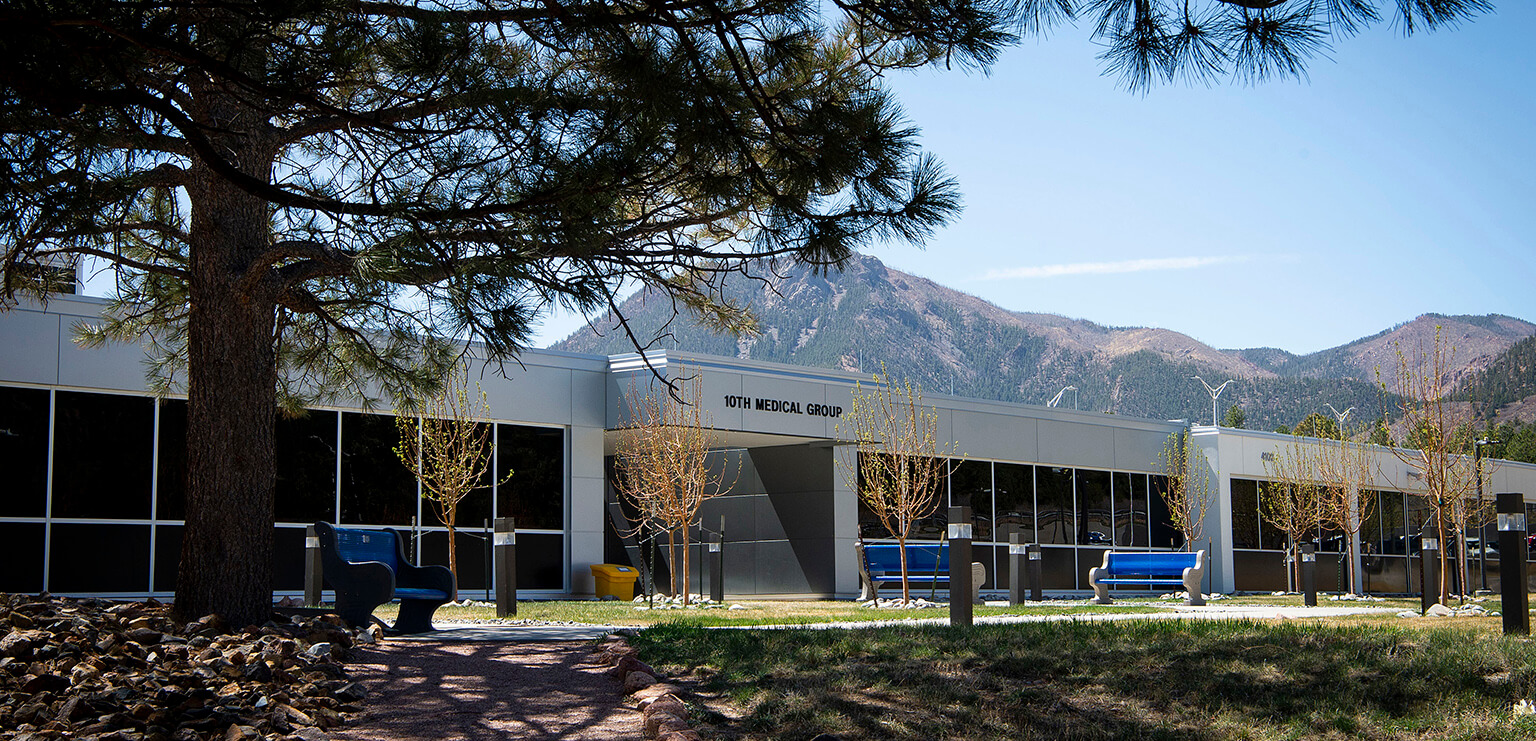Med Group address medical needs during basic cadet training
 The 10th Medical Group members support the U.S. Air Force Academy Class of 2027 In-processing Day and Basic Cadet Training. (U.S. Air Force photo by Josh Armstrong)
The 10th Medical Group members support the U.S. Air Force Academy Class of 2027 In-processing Day and Basic Cadet Training. (U.S. Air Force photo by Josh Armstrong)
By Randy Roughton
U.S. Air Force Academy Strategic Communications
U.S. AIR FORCE ACADEMY, Colo.- The 10th Medical Group members support U.S. Air Force Academy Basic Cadet Training, beginning with screening basic cadets for in-processing and continuing through treating injuries and illnesses during Jacks Valley field training.
“While six weeks may seem like a long time to some, that is all the time we have to prepare just over 1,100 new cadets for the academic, physical and military training challenges of the Air Force Academy,” said Col. Brandon McBrayer, BCT commander. “While cadre strive to ensure training is as safe as possible, accidents can happen. However, since our medical team quickly treats our basic cadets with a high quality of care, we have more time with them for training and their morale stays high because they know we care about their health.”
Station-to-station screening
This year, over 160 specialists from the 10th Medical Group staffed medical screening stations in the Holaday Athletic Center, evaluating basic cadets for contagious illnesses.
The group completed most zone one stations in less than six hours with no bottlenecks or delays on In-processing Day, said Christopher L. Reese, 10th Medical Group cadet medicine clinic nurse consultant. In recent years, intercollegiate athletes reported with the first four squadrons, which created crowding at the check-in station. This year, they reported with their regular squadrons, eliminating the delays at check-in as well as the cardiac and electrocardiogram stations.
Vital medical screenings
The medical screenings are vital to ensure basic cadets remain healthy throughout their training and their Academy careers, Reese said. The lab work allows medical personnel to identify any potential issues, such as the need for iron supplements.
Immunization station specialists ensure that basic cadets have the required shots to prevent disease outbreaks. Optometry technicians verify basic cadets have the correct prescription eyeglasses available so they can complete training. They check visual acuity and depth during training so the cadets can participate in airmanship programs. Physical therapists complete shoe checks to ensure basic cadets have serviceable shoes to participate in the strenuous demands of Basic Cadet Training.
The entry check-in station ensures basic cadets with recent medical conditions are evaluated for admission to the Academy. Cardiac screening evaluates basic cadets for serious medical conditions that might have been missed by previous primary care providers. Medical specialists also complete screening to evaluate for any underlying cardiac conditions that could result in serious complications if not detected.
Continued medical support throughout training
Throughout the six weeks of Basic Cadet Training, the 10th Medical Group operated a clinic in Gregory Hall for follow-up electrocardiograms, dental and optometry testing, and sick call. Medics also joined the basic cadets as they began their field training at Jacks Valley.
The 10th Medical Group ensure cadets are healthy and stay that way throughout their time here, so they can focus on their studies and military training without worrying about their health. They do this while providing exceptional customer service.
“Medical screenings are the first things [basic cadets] experience as new appointees and we want to leave a positive, lasting impression as the face of the United States Air Force Academy,” Reese said.
See photos from Basic Cadet Training on Flickr.